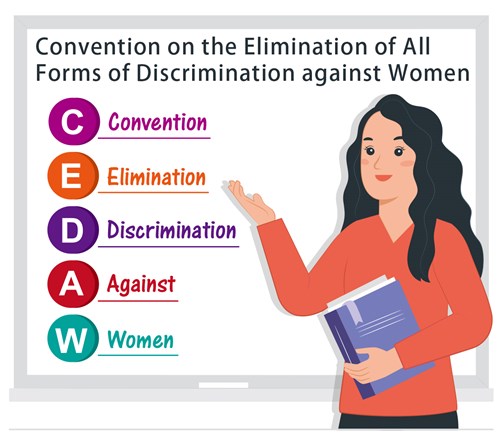What is CEDAW?
- Publication Date :
- Last updated:2023-05-15
- View count:396
What is CEDAW?

CEDAW is the abbreviation for "Convention on the Elimination of All Forms of Discrimination against Women." It was adopted by the United Nations General Assembly and came into force in 1981. This convention explicitly sets out that member states should enact legislation and take all appropriate measures to eliminate discrimination against women and ensure their equal rights in areas such as education, employment, healthcare, family, politics, law, society, and the economy.
The implementation of CEDAW also includes the "General Recommendations" issued by the CEDAW Committee over the years. In order to ensure that CEDAW keeps up with the times both substantively and procedurally, the Committee continuously collects information from member states through United Nations system reports or observations from the Committee. Since 1986, the Committee has issued 37 "General Recommendations" that address important women's rights issues not yet universally covered by CEDAW. These recommendations clarify, expand, and extend the specific application of the Convention, understanding it through the concept of "intersectionality": discrimination against women based on sex and gender is often not isolated, but intertwined with other factors that impact women, including race, ethnicity, religion, health conditions, age, class, sexual orientation, and gender identity.
In Taiwan, the "Act on Implementation of the Convention on the Elimination of All Forms of Discrimination against Women" was enacted in the year 2011 and implemented from the year 2012 onwards. Article 2 of the Act stipulates that "the provisions of the Convention that reveal the protection of gender rights and the promotion of gender equality shall have the force of domestic law." Article 3 of the Act states that "regulations and administrative measures applying the provisions of the Convention shall be interpreted in accordance with the intentions of the Convention and the interpretations of the United Nations Committee on the Elimination of Discrimination against Women." Additionally, Article 8 of the Act states that "government agencies at all levels shall review the regulations and administrative measures under their jurisdiction in accordance with the provisions of the Convention. If any regulations do not comply with the provisions of the Convention, they shall complete the formulation, amendment, or abolition of the regulations, as well as the improvement of administrative measures within three years after the implementation of this Act." In other words, if Taiwan's laws do not comply with the provisions of CEDAW, government agencies must amend the laws to align with CEDAW. Moreover, based on the principle of lawful administration, decisions in governance and individual cases should also be made in accordance with CEDAW.

